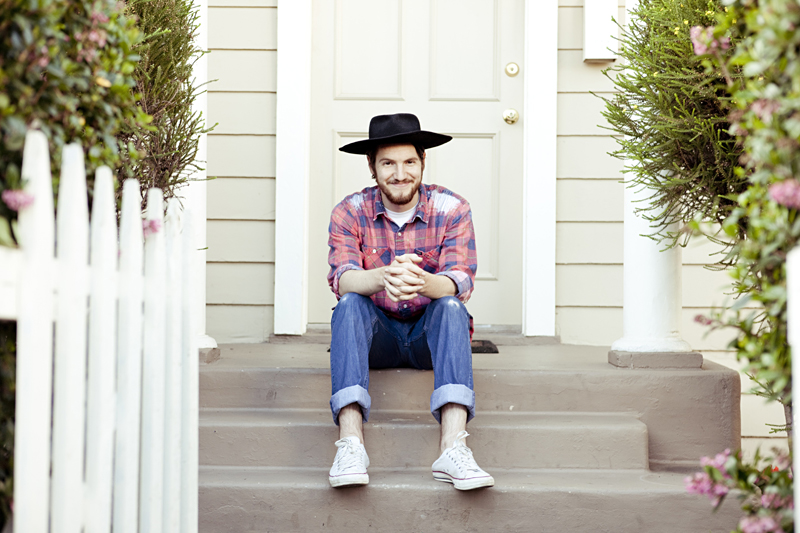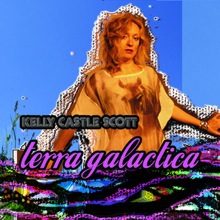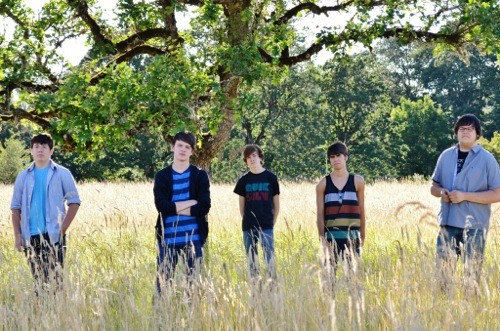It’s not often that the term “guitar virtuoso” gets thrown around, or that an up-and-coming musician gets to play guitar for Lucinda Williams. L.A. singer/songwriter Blake Mills recently spoke to me about one of his newer songs, delving into wacky guitar tunings, awkward performances, and cheesy buildups. You can catch Mills this Wednesday at the Paramount when he opens for Fiona Apple.
Song: “Don’t Tell Our Friends About Me.”
Album: It’s not from an album. It’s a newer song that isn’t even yet recorded.
Release date: I have no idea. It’s a song that I play live, and it’s nice, because it sort of breaks up the set a little bit.
What is the meaning behind the song? It’s a situation that I think more people than myself have found themselves in. It’s a sort of “unspoken bond” that gets violated, and sometimes it doesn’t. It’s interesting with a lot of exes—sometimes you see what they end up divulging after the fact, and their version of the events, and it’s very telling. It’s a song I wrote for someone that I’m still in a relationship with, not an ex. It’s sort of like a prenup—in a worst-case scenario, let’s just be clear about this . . . it might be overly cold and modern, but the girl that I’m seeing, she gets it. She’s on the same level.
Where was it written? I remember I was living alone, and I remember writing it in the living room of my old place in Venice, Calif. I think it came slowly—they all kind of come slowly, but this was a song that had a couple of verses and a chorus, and I started performing it to see if it went over well, or if it had legs or whatever. I wrote another verse, I think, when I was on the road with Lucinda [Williams]. I wrote a little bit more to it when I talked to her about songwriting . . . it’s not nearly as candid as stuff on the record I made. It’s a little more veiled, and I think I like it like that.
What’s your favorite line in the song? “I know I fucked up,” because it’s the point in which it stops making excuses, you know? The song kind of . . . covers my ass, trying to convince this person to not kiss and tell or whatever. Ultimately, it sort of puts it into perspective . . . It’s like the ginger in between sushi. The palate-cleanser.
Which part was the hardest to come up with? I don’t know if I remember the process well enough to say. Nothing was necessarily hard to come up with; it just sort of one day was like, “Ah! Yes!” You just sort of think about the subject, and things sort of pop up in your head. It wasn’t really difficult, it was just sort of slow.
The song hasn’t been recorded, so you obviously still can change whatever you want—is there anything in particular you might end up changing? You know what—there’s one part, and if I can come up with something better, I will. There’s this one part where, just sort of melodically and dynamically, it builds into the chorus, and that build sometimes strikes me as . . . I can’t even think of any references. I don’t want to name any names or shoot any bands down, but the build, it just feels a little bit “familiar.” It’s a little cheesy. All in all, I think it’s a good device—especially being the opener so often, people are there to drink beer and chat and be idiots and latch onto that: “Oh, I understand what’s happening here. Here comes the chorus!” Maybe it’s a buffer.
Odd fact about song: The standard tuning for a guitar is E-A-D-G-B-E, and I just tune a little screwy for that song: E-A-D-G-B flat-F. I can’t do anything else in this tuning—it’s not exactly a tuning I’ve spent a lot of time with, but I was trying to get this one chord, and I think that’s kind of how the song started. The rest of it unfolded from there. But toward the end of the song, it’s great because I kind of have to resist the urge of overplaying and taking off, because if I lose the plot, I’m done for . . . The song is in B flat, so what it does is it gives you a lot of open strings to ring out. So that was the idea.
What was your favorite time performing this song live? I know that it’s only been played live: I can’t pinpoint it. When the crowd understands the humor in it and laughs, I know that they get it. Those are my favorite times . . . The song isn’t really a joke, but if they’re silent you get the feeling of the room not getting the joke.
Has there been a time where they didn’t get the joke and you were just like, “Oh God, this is awkward”? There have been plenty of those, yeah. At some shows, for example, there’s a portion of the audience that comes to see Lucinda do what she’s going to do that night, watch her perform and all those things, and there’s another portion that thinks you’re a criminal. So for the rest of the night they’re just cackling away. Needless to say for the opening set it’s a uphill battle, and I don’t always necessarily want to do it. Some nights I’d much prefer just going out and playing guitar behind her, but if an audience is willing to extend their attention span a little bit, I think they’ll get a lot out of it. Some of this shit, it’s pretty funny. Even if they don’t like the music or my voice, all I ask for is a little patience and manners.
What was your inspiration for writing the song? The point of the song is there are secrets and let’s keep them. No matter what happens in the future, there’s stuff that we both want kept secret.








